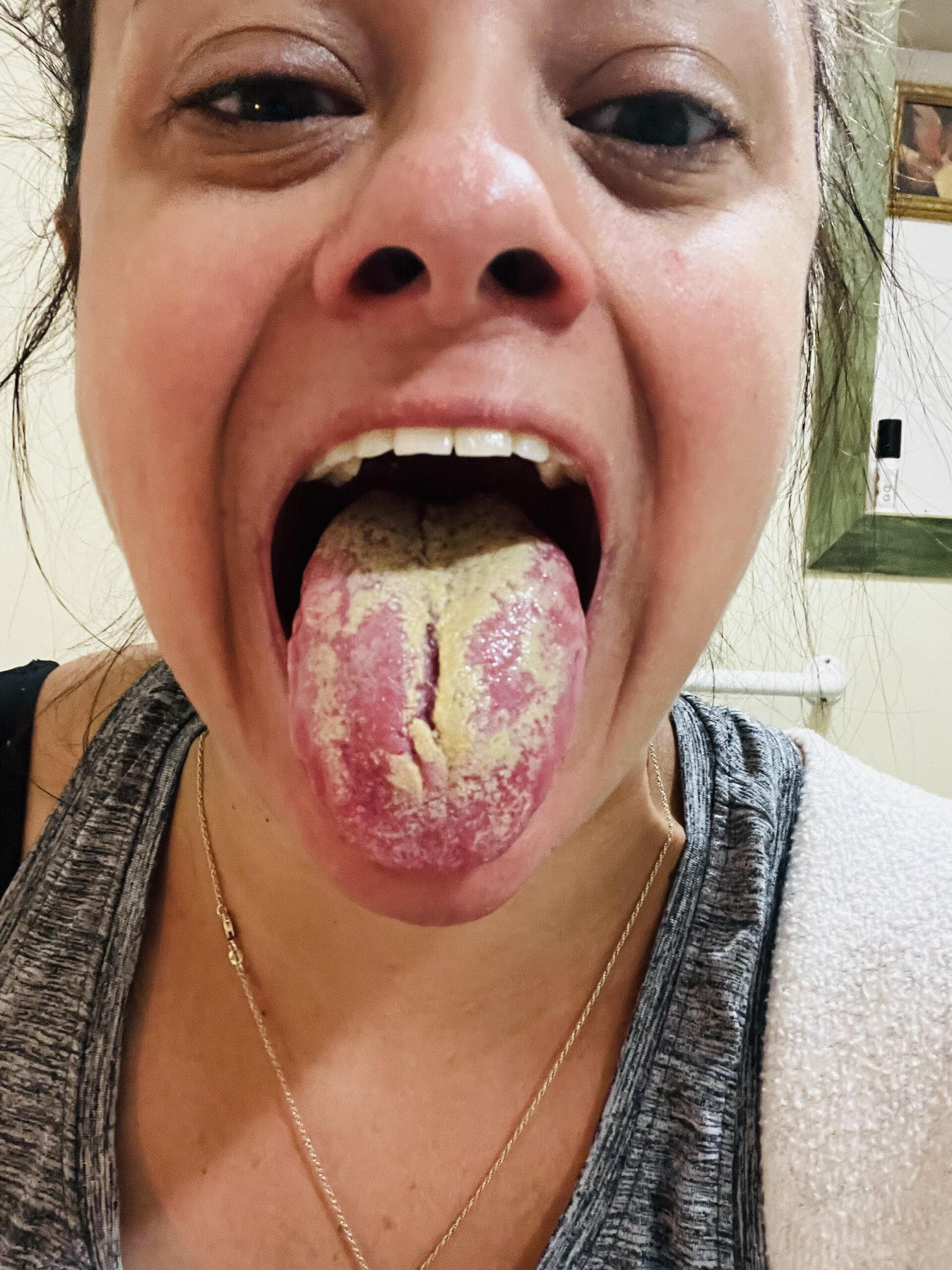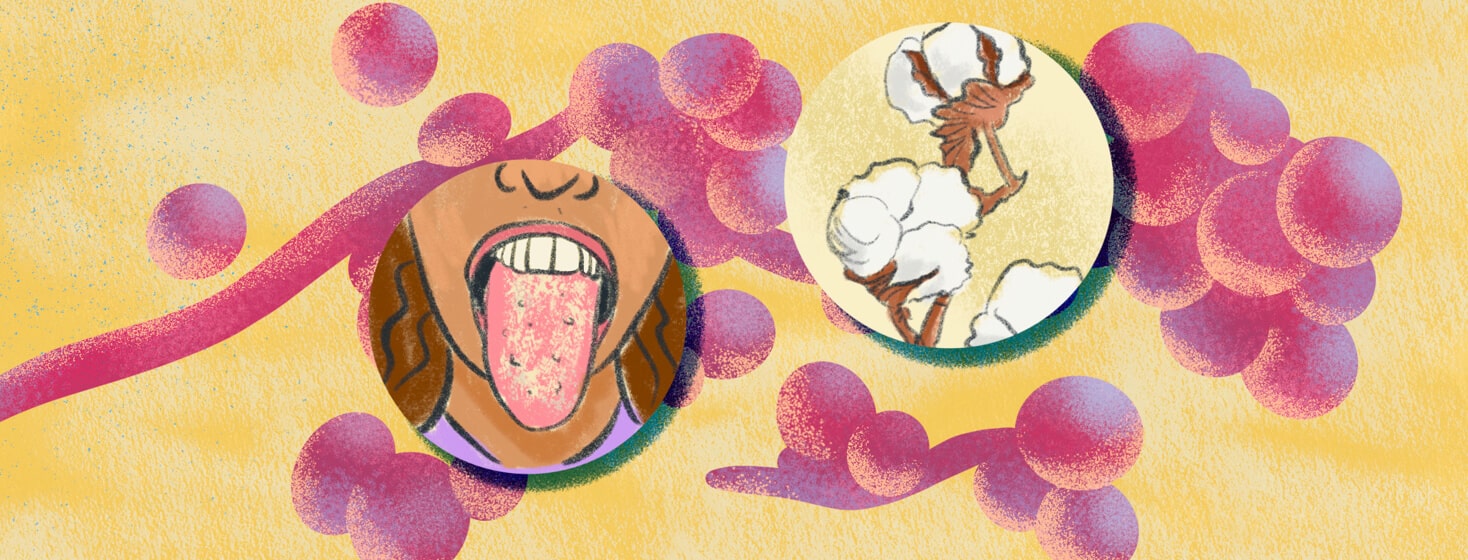Psoriasis and Thrush: What's The Link?
About a month ago, I began noticing white patches on my tongue and inner cheeks. I always drink tons of water, but my mouth began to feel dry all of the time, no matter how much water I consumed.
 One day, while joking around with a friend, I playfully stuck my tongue out at her. Immediately she said, “Brittany, there’s something wrong with your tongue”. Five minutes of denial and a trip to the doctor later, I was diagnosed with thrush.
One day, while joking around with a friend, I playfully stuck my tongue out at her. Immediately she said, “Brittany, there’s something wrong with your tongue”. Five minutes of denial and a trip to the doctor later, I was diagnosed with thrush.
Let's talk thrush
Thrush, or Candidiasis, is a fungal infection caused by a yeast called Candida. Candida typically lives on the skin and inside the body in places such as the mouth, throat, gut, and vagina. Candidiasis in the mouth and throat is typically referred to as thrush.1
What are the symptoms of thrush?
Candidiasis in the mouth and throat can have many different symptoms, including 1
- White patches on the inner cheeks, tongue, roof of the mouth, and throat
- Cotton-like feeling in the mouth
- Redness or soreness of mouth and throat
- Loss of taste
- Pain or discomfort while eating or swallowing
- Redness and cracking at the corners of the mouth
While I didn’t experience any loss of taste, I did exhibit almost all of the other symptoms, some of which I had been experiencing for a while. Not only was it painful (and ugly), it was concerning.
Who gets thrush and is it contagious?
Candidiasis in the mouth, throat, or esophagus is relatively uncommon in healthy adults. Babies under 1 month old, toddlers, elderly adults, and people with weakened immune systems are more at risk.1
Oral thrush is not contagious, and it can usually be successfully treated with anti-fungal medication. In my case, I was given an anti-fungal medication that was swooshed around the mouth and swallowed. Not particularly tasty but effective.
Is there a connection between thrush and psoriasis?
Over the last decade, studies have consistently shown a link between candidiasis and psoriasis. While everyone has some Candida yeast in and on their body, someone with an autoimmune disease may be at a higher risk of an overproduction of the Candida yeast, which results in developing candidiasis or thrush.2
What does the research say?
A 2016 study by the Keck School of Medicine reports that “oral candidiasis has been noted in patients using topical corticosteroids for psoriasis, and systemic immunosuppressive agents used to treat psoriasis are associated with increased rates of oral candidiasis. Increased Candida colonization and mild or moderate localized Candida infections have been reported in patients receiving biologic therapy for psoriasis and other inflammatory diseases"3
Another study in the International Journal of Dermatology found that the colonization of Candida in people with psoriasis was significantly greater than the colonization in people without psoriasis.4
Some studies have shown that candidiasis has triggered a psoriasis flare, while others have shown that psoriasis triggered the candidiasis infection. As mentioned above, it is thought that medications cause candidiasis in some people and other studies have witnessed no notable link between medications and candidiasis.
An underlying biological link
 Though the link does exist, the exact reason behind it has yet to be determined. I am not entirely sure if my psoriasis had anything to do with the thrush infection in my mouth but I always find it curious when two conditions have an underlying biological link. And I don’t believe in coincidences.
Though the link does exist, the exact reason behind it has yet to be determined. I am not entirely sure if my psoriasis had anything to do with the thrush infection in my mouth but I always find it curious when two conditions have an underlying biological link. And I don’t believe in coincidences.

Join the conversation